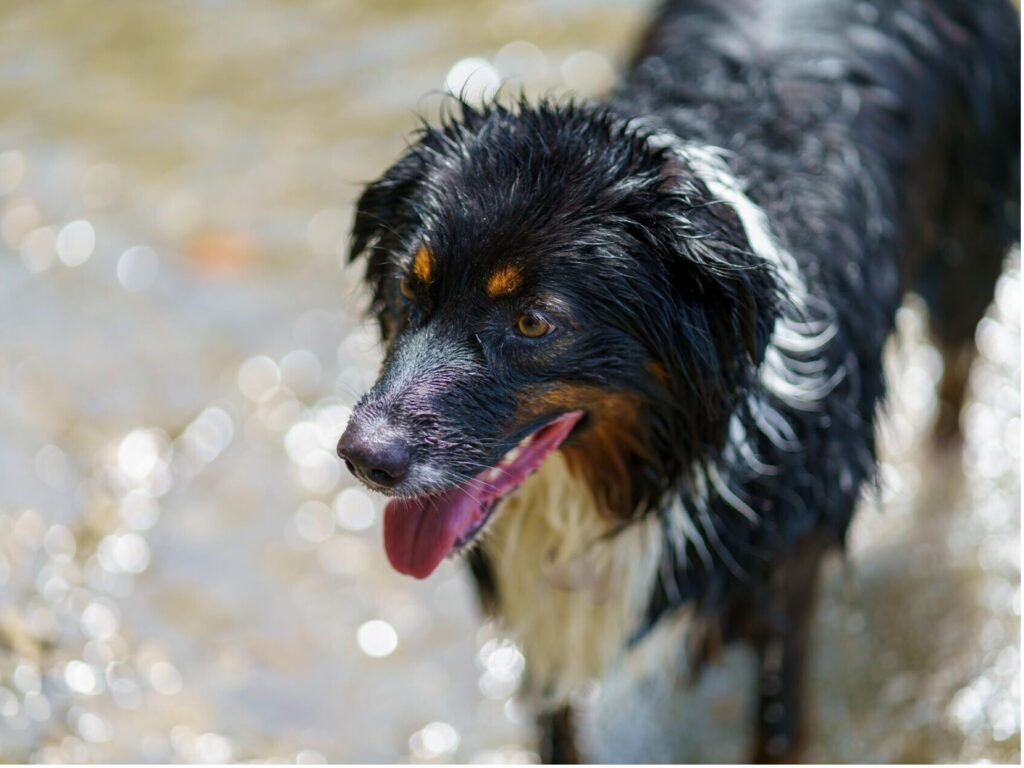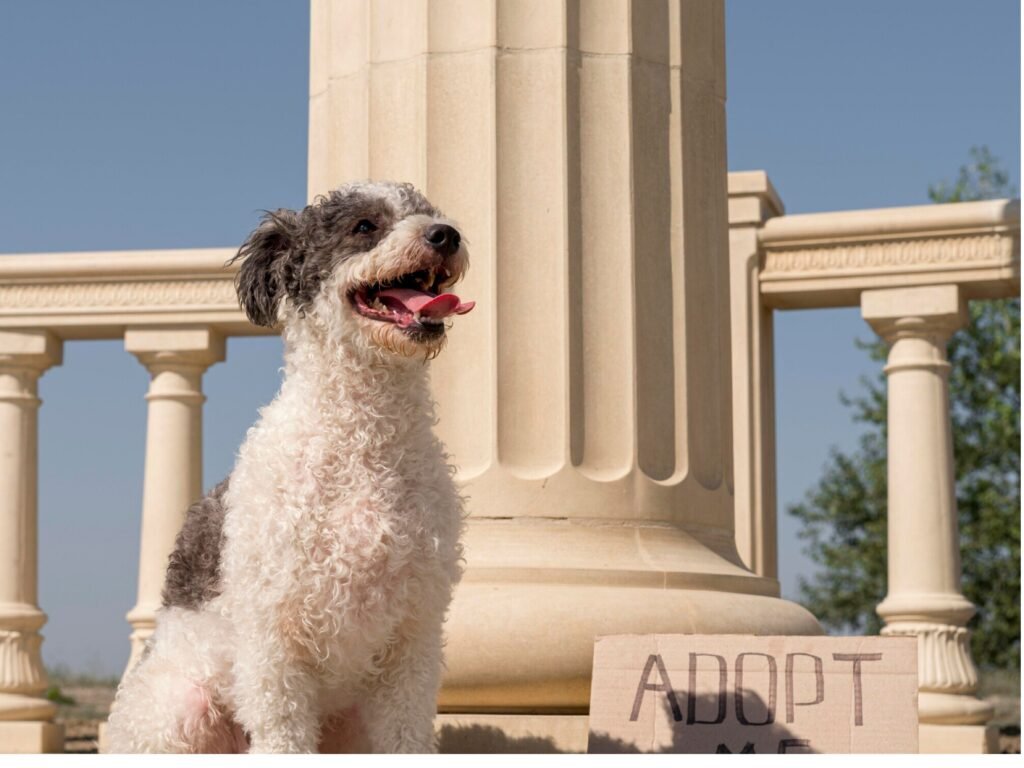The Tri-Color Cavalier King Charles Spaniel is a charming and friendly dog, known for its beautiful coat and loving nature. This guide will explore their personality, care needs, and more to help you understand this delightful breed.

What Does a Tri-Color Cavalier Look Like?
The Tri-Color Cavalier King Charles Spaniel has a striking coat made up of three colors: black, white, and tan. Typically, they have a black base with white markings and tan spots, often seen above their eyes and on their cheeks. Their coat is silky and can be wavy or straight, making them look elegant and adorable.
Coat Care
Taking care of a Tri-Color Cavalier’s coat is essential to keep it healthy. Regular brushing helps prevent tangles and keeps their fur shiny. Bathing them every few weeks will also keep their coat clean, but be sure to use dog shampoo to avoid irritating their skin.
Understanding the Personality of Tri-Color Cavaliers
Tri-Color Cavaliers are known for their friendly and affectionate personalities They are friendly dogs that love to be with people and other animals. Their gentle nature makes them great companions for families, children, and even seniors.
Temperament Traits
- Affectionate: Tri-Color Cavaliers love to cuddle and be close to their owners.
- Playful: They enjoy playing games and being active, making them fun pets.
- Intelligent: This breed is smart and can learn commands quickly, which is why they are often easy to train.
Grooming and Care Tips for Tri-Color Cavaliers
Proper care is important for keeping your Tri-Color Cavalier healthy and happy. Here are some tips:
- Regular Exercise: Tri-Color Cavaliers need daily exercise, like walks or playtime, to stay fit and happy.
- Routine Vet Visits: Regular check-ups are crucial for monitoring their health and preventing issues.
- Dental Care: Brushing their teeth and providing dental treats can help keep their teeth healthy.

Health Considerations for Tri-Color Cavaliers
Like all breeds, Tri-Color Cavaliers can be prone to certain health issues. Some common conditions include:
- Heart Problems: Cavalier King Charles Spaniels are known to have heart disease, so regular vet check-ups are essential.
- Eye Issues: They can also face eye problems, such as cataracts, so monitoring their eye health is important.
Feeding and Nutrition for Your Tri-Color Cavalier
Feeding your Tri-Color Cavalier a balanced diet is important for their health. Look for high-quality dog food that is suitable for their age and size. Make sure to follow the feeding guidelines on the packaging and consult your vet for personalized advice.
Training a Tri-Color Cavalier King Charles Spaniel
Training a Tri-Color Cavalier can be a fun and rewarding experience. Here are some tips for training your dog successfully:
- Positive Reinforcement: Give them treats and praise when they behave well.
- Short Training Sessions: Make training sessions short and fun to keep their attention.
- Socialization: Introduce them to different people, animals, and places to help them feel comfortable around others.
Finding a Tri-Color Cavalier: Adoption vs. Breeders
When looking for a Tri-Color Cavalier King Charles Spaniel, you have two main options: adopting from a shelter or buying from a reputable breeder.
- Adoption: Think about getting a dog from local shelters or rescue groups. This can give a dog a loving home while also helping animals in need.
- Breeders: If you choose to buy from a breeder, make sure they are responsible and follow ethical breeding practices. Visit their facility and ask about the health of their dogs.

Conclusion: The Joy of Having a Tri-Color Cavalier King Charles Spaniel
The Tri-Color Cavalier King Charles Spaniel is a loving and friendly breed that makes a wonderful pet for families and individuals alike. With their charming personality and beautiful coat, these dogs bring joy and companionship to their owners. By understanding their needs and providing proper care, you can enjoy many happy moments with your Tri-Color Cavalier for years to come.
People Also Ask
What is a Tri-Color Cavalier King Charles Spaniel?
A Tri-Color Cavalier King Charles Spaniel is a type of Cavalier known for its coat with three colors: black, white, and tan.
What does a Tri-Color Cavalier look like?
Tri-Color Cavaliers have a black base coat with white markings and tan spots, usually found above their eyes and on their cheeks.
What is the personality of a Tri-Color Cavalier like?
They are friendly, affectionate, and playful dogs that love to be around people and other pets.
How much exercise does a Tri-Color Cavalier need?
They need regular exercise, such as daily walks and playtime, to keep them happy and healthy.
What are the grooming needs for a Tri-Color Cavalier?
Regular brushing is important to prevent tangles in their silky coat, and they should be bathed every few weeks to keep them clean.
Are Tri-Color Cavaliers good with children?
Yes, they are generally very good with children and make great family pets due to their gentle nature.
What health issues should I be aware of with Tri-Color Cavaliers?
Common health issues include heart problems and eye conditions, so regular vet check-ups are important for their health.
How do I train a Tri-Color Cavalier?
Use positive reinforcement, like treats and praise, and keep training sessions short and fun to help them learn.
Can I adopt a Tri-Color Cavalier from a shelter?
Yes, you can find Tri-Color Cavaliers in shelters and rescue organizations, making adoption a great option.
Do Tri-Color Cavaliers get along with other pets?
Yes, they are usually social and get along well with other dogs and pets, especially if they are properly socialized from a young age.
